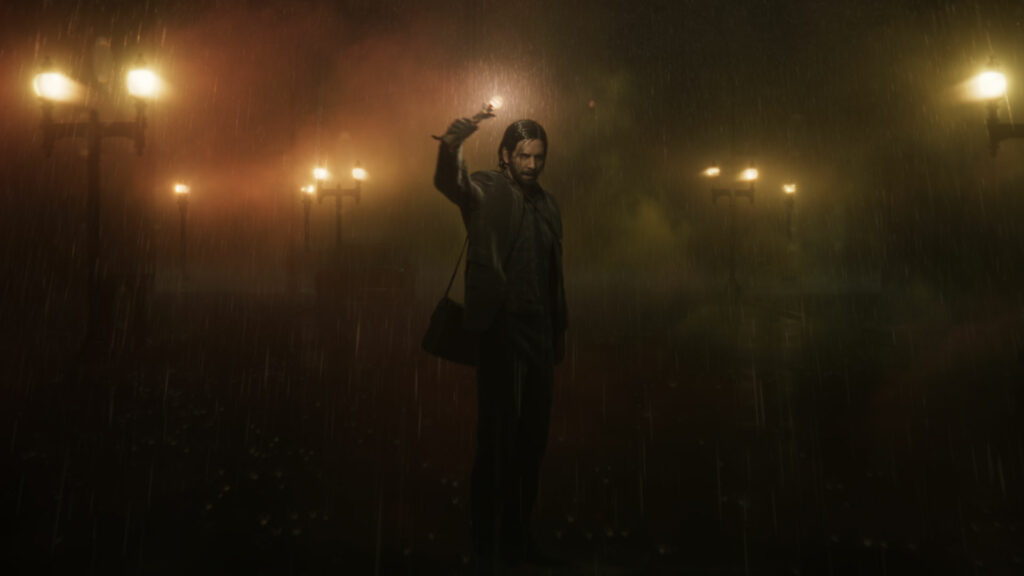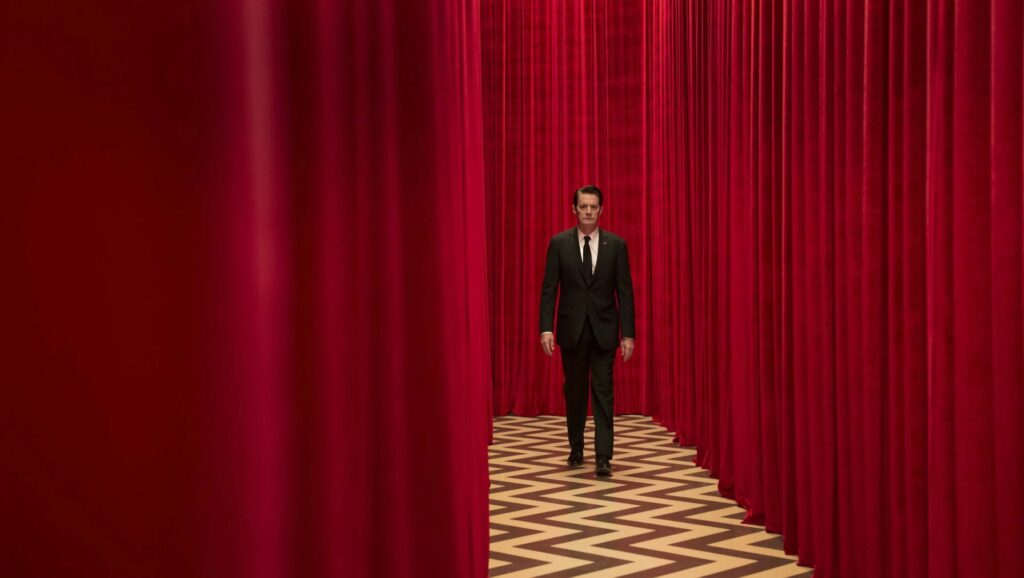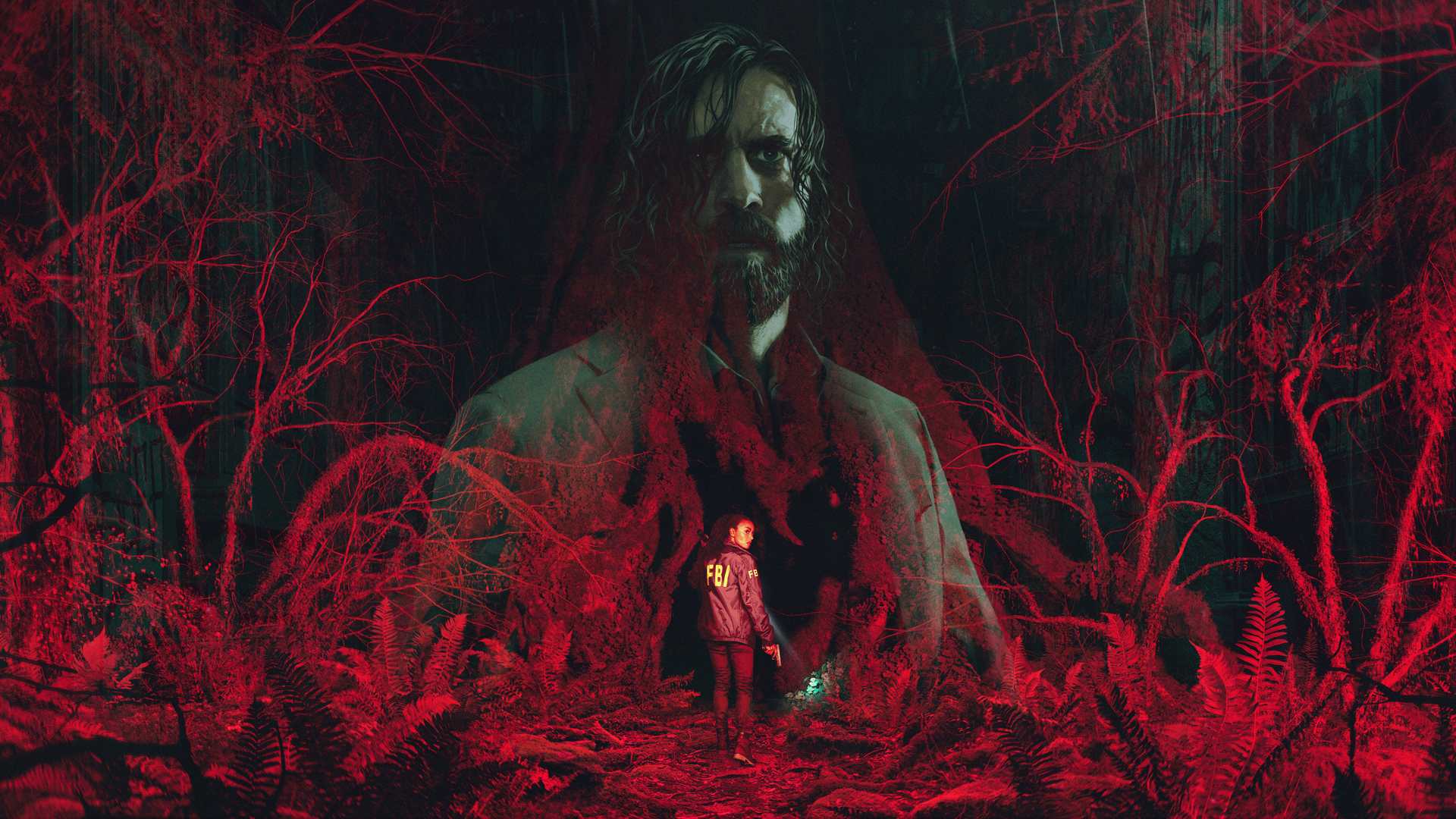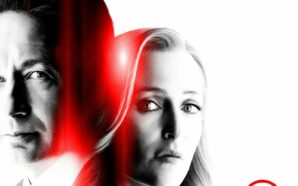Remedy embraces their inspirations instead of trying to hide them. The developer has carved out their own fascinating groove in the gaming landscape, with a tone and style that feels unique to them, despite the mixture of influences being clear to see. The promotion for the upcoming Alan Wake 2 was detailed that the first season of True Detective will be one such influence on the game, as well as Taxi Driver on the dark recreation of a metafictional, explorable New York City. But fans of the first game know that one inspiration dominates above all others: Twin Peaks.
The pacific north-western setting on the threshold between worlds. The quirky town that alternates between cosy and horrific. The townsfolk with a secret society and the lamp/log lady frequenting the diner. The beautiful blonde at the centre of a dark mystery. The ending of our hero being trapped in some other dimension while his villainous doppelganger takes his place. Alan Wake certainly has its own identity, mainly through the gameplay and Alan himself, a writer whose creations come alive, rather than an FBI agent hero, but Mark Frost and David Lynch’s seminal series is a clear foundation.
It may have been a long road to Alan Wake 2 but it was even longer for a continuation of Twin Peaks. It took 26 years for the sequel series, Twin Peaks: The Return, to reach our TV screens, exactly double that of Alan Wake’s 13 years away. If the show, and its spin-off film, made such a profound impact on the first game, it seems likely that so too will it on the sequel. Yet now there are 18 brilliant and abstract new hours of Twin Peaks to take inspiration from that weren’t there when the first game was released. How much will Lynch’s belated sequel influence Sam Lake’s?

In replaying the first game recently in preparation for the second’s release, I was surprised by how many comparative elements from Twin Peaks: The Return can already be found in the original Alan Wake. The darkness-possessed lumberjack or hunter enemies, the Taken, with their dirty shadowy beardedness reminded me a lot of the Woodsmen from the show. Not including his doppelganger Mr Scratch, Alan was already split into two ‘good’ versions of himself during the DLC for the first game, echoing the multiple versions of Cooper seen throughout The Return. Each ‘episode’ of the game, split as such in ode to its TV inspirations, ends with a song, like the musical performances of the revival series.
I also couldn’t help but draw comparisons between (the long lost) Phillip Jeffries and Thomas Zane. They are both almost proto versions of their series’ protagonists, holding the same jobs and getting lost in their respective dark dimensions for decades before aiding Alan/Cooper on their mission from within some protective suit, whether an old diving costume or whatever that big tea kettle is in Twin Peaks. I was especially shocked to remember that Alan Wake ends with Alan beginning to pen a sequel novel, titled ‘Return.’ It’s almost like the entwining of these franchises was meant to be.
What we know for certain will be like Twin Peaks in Alan Wake 2 is the arrival of a new playable FBI agent to the town of Bright Falls. The first game distanced itself from having a Cooper-esque protagonist and instead the sole FBI agent, Nightingale, was painted as an antagonistic obstacle. Saga Anderson might be inspired by Dale Cooper or perhaps is a response to Tamara Preston, the new FBI agent in The Return, although I’m sure she’ll have much more to do than Preston did. But while Anderson is in Bright Falls, Alan is playable in The Dark Place. It’ll be interesting to see how/if/when he’ll escape but while there I imagine he’ll have a deeper understanding and control over the dimension, much like Cooper did by the end of The Return when he set his plan in motion.

Twin Peaks: The Return shocked viewers in its final episodes by turning into a time travel story, where Cooper travels back to save Laura Palmer from death only to be stopped by Judy and reality to break. At least, that’s how I interpret it in its most basic form. Well, kinda, but it would take too long to get into. I’m eager to see if Alan will plan to use the powers of The Dark Place to try and more substantially change reality, maybe to stop him and his wife Alice ever travelling to Bright Falls. Could he also fuck up reality as we know it? Thomas Zane tried to do this in 1970 by resurrecting his beloved Barbara Jagger only to give the darkness a foothold on Earth. Could there already have been some unforeseen impact on saving Alice, a character we haven’t seen since she breached the water after escaping Cauldron Lake? Perhaps she’s a Carrie Page-type figure, forgetting who she really is, or maybe even Audrey Horne, disturbed by her past brush with darkness and living in a tormented fantasy.
The big mystery going into Alan Wake 2 might be Mr Scratch, Alan’s evil doppelganger. Where is he and what is his role? Like Mr C in Twin Peaks, Cooper’s Bob-possessed doppelganger, Scratch seems to now have long hair and could be spreading his evil influence on the world. Perhaps with Alan gone and Scratch replacing him, Bright Falls has become a darker place, crime and disease-ridden, like the eponymous TV town that inspired it. Maybe it’s Saga’s role to stop Scratch. Missing diary pages from one of Laura Palmer’s secret diaries play a role in The Return so perhaps some missing manuscript pages of Alan’s will be of narrative importance in the sequel game, aiding Saga on her quest. If the rules of The Dark Place are the same as the Black Lodge/Red Room then Mr Scratch will have to be forced to return before Alan can leave.
There are other Twin Peaks story elements that could inspire Sam Lake and the Remedy team, like giving an origin of the darkness – though good luck matching the majesty of The Return’s masterpiece Part 8 – or introducing the Alan Wake/Control universe’s own answer to the counterbalancing White Lodge. But it’s not just plot points to take inspiration from. What’s much more interesting and effective is capturing the tone and feel of Lynch’s oeuvre, not just Twin Peaks. The twisted dream logic. But, with Alan Wake ending on a cliffhanger that’s almost beat-for-beat that of the original Twin Peaks ending, one has to imagine the resolution might be similar too.









[…] How Will Twin Peaks: The Return Inspire Alan Wake 2? […]